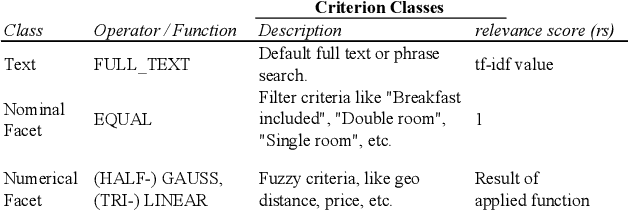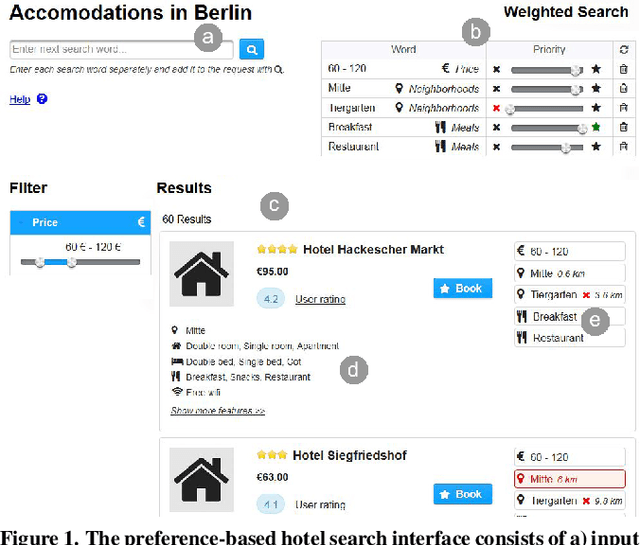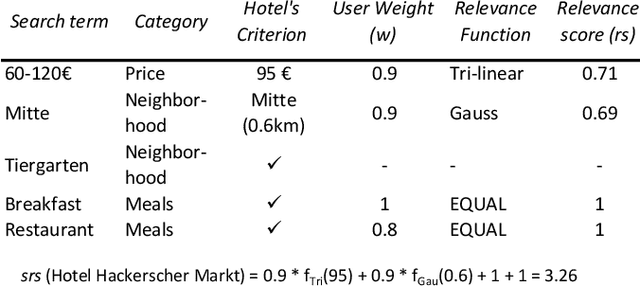Wilko van Hoek
Evaluation of a Search Interface for Preference-Based Ranking -- Measuring User Satisfaction and System Performance
Feb 13, 2023



Abstract:Finding a product online can be a challenging task for users. Faceted search interfaces, often in combination with recommenders, can support users in finding a product that fits their preferences. However, those preferences are not always equally weighted: some might be more important to a user than others (e.g. red is the favorite color, but blue is also fine) and sometimes preferences are even contradictory (e.g. the lowest price vs. the highest performance). Often, there is even no product that meets all preferences. In those cases, faceted search interfaces reach their limits. In our research, we investigate the potential of a search interface, which allows a preference-based ranking based on weighted search and facet terms. We performed a user study with 24 participants and measured user satisfaction and system performance. The results show that with the preference-based search interface the users were given more alternatives that best meet their preferences and that they are more satisfied with the selected product than with a search interface using standard facets. Furthermore, in this work we study the relationship between user satisfaction and search precision within the whole search session and found first indications that there might be a relation between them.
 Add to Chrome
Add to Chrome Add to Firefox
Add to Firefox Add to Edge
Add to Edge